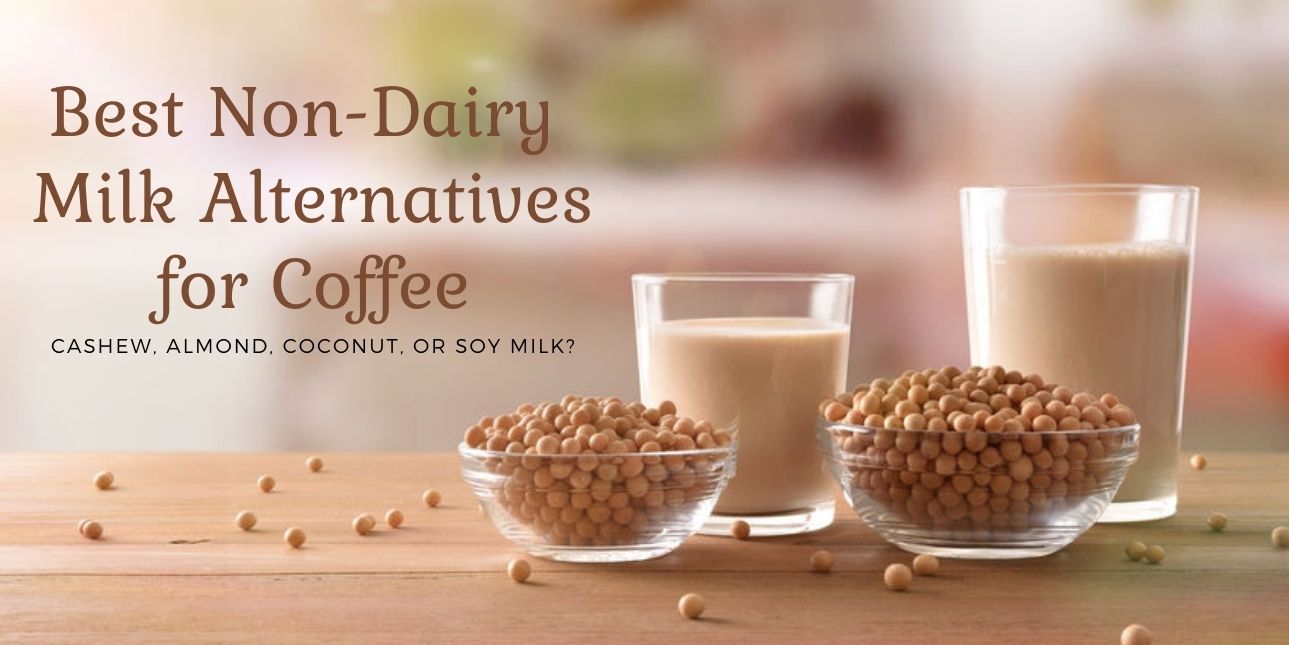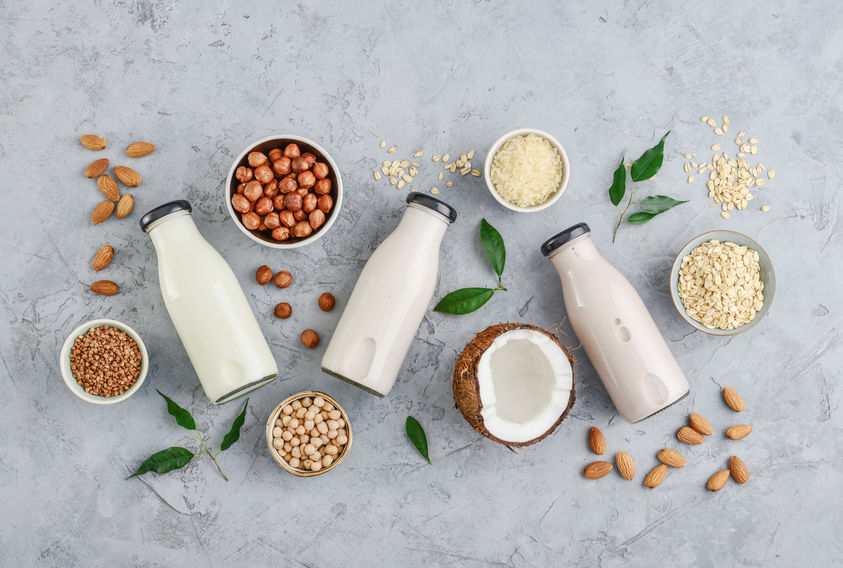Coffee is a staple for many people, but what if you're trying to avoid milk? There are so many options these days!
As a restaurant owner or food service manager, you understand how essential non-dairy milk alternatives are for some coffee drinkers. You are also aware of how critical it is you offer milk substitutes for coffee that taste good.
Delicious Milk Substitutes for Coffee
When it comes to great-tasting coffee, it is all in the way you prepare one of America's favorite beverages. It's also about the equipment you use to make these drinks. You'll need commercial-grade espresso machines, steamers, and commercial ice makers.
If your foodservice establishment offers various coffee options, non-dairy substitutes need to be on your menu. Health care professionals report that 68% of Americans are lactose intolerant, and many more report patients with lactose sensitivity.
Some people have dietary restrictions unrelated to lactose. They are all looking for delicious ways to lighten their black coffee. Here are seven of the best milk alternatives your foodservice establishment should be offering.
7 of the Best Milk Alternatives for Coffee
In the United States, 64% of adults drink at least one cup of coffee every day, and it seems that everyone has a unique way they prefer to order. When they choose a milk substitute, they still want it to taste the way it would if you were making it with milk.
For lattes and cappuccinos, where you need to steam the milk, you want it to form a foam the same as milk. You can better understand how these non-dairy substitutes perform under the pressure of simulating the taste of cow’s milk.
1. Soy Milk
As one of the most popular milk alternatives, coffeehouses are familiar with how to use soy milk. Soy milk is easy to purchase and is as affordable as cow’s milk. It does struggle to react the same as milk when placed under extreme temperatures. So, baristas must be familiar with this reaction.
Soy milk is smooth and creamy. It has a neutral taste and will blend well with the other flavors added to the coffee.
2. Almond Milk
Much like soy milk, almond milk is one of the most popular milk substitutes for coffee. It is the most popular of the other nut milk options. Also, like soy milk, its reaction to extreme heat makes it tricky to work with when trying to simulate the same result as cow’s milk. However, once you learn how to handle almond milk, you should have no problems creating delicious coffee drinks. Almond milk has a nutty flavor and can taste bitter. If you have a customer who has not ordered almond milk before, make sure they are aware they may want additional sweeteners. Sweetened almond milk is also available.
3. Oat Milk
One of the most popular non-dairy milk to use for your coffee is oat milk. It’s made from oats, water, and often canola oil or grapeseed oil for emulsification. The result is surprisingly rich without sacrificing taste.
Oat milk has a creamy and smooth taste that is very similar to full-fat dairy milk. It blends into coffee easily, contributing to its rapid rise in popularity.
4. Hemp Milk
Hemp milk is a widely used milk that has no dairy yet is high in protein. Hemp plants contain small quantities of THC, the psychoactive ingredient of cannabis. However, hemp seeds nor the milk contain enough THC to produce any side effects. Commercial Hemp is now legal in America, which means more people can enjoy hemp milk as a milk substitute for coffee.
It has a nutty or vegetal flavor that is easy to dissolve.
5. Coconut Milk
One of the newest dairy substitutes for coffee is coconut milk. Coconut milk is high in fat and works well in coffee drinks, and many brands have a bland taste with only a slight coconut taste. Use canned coconut milk, not bottled, as they will be much thicker and have more taste.
One of the benefits of coconut milk in coffee is that it doesn’t have a strong, overpowering flavor. It masks flavors well when mixed with syrups or other ingredients and offers a light sweetness to create latte and cappuccino drinks.
6. Rice Milk
If you need a milk substitute for your coffee, think about rice. It is hypoallergenic and so ideal for those with allergies or lactose sensitivities. For better results with customers, offer coconut milk in coffee as well.
Rice milk has a neutral taste that lets the flavor of your coffee come through. However, its watery consistency does not give the drink enough thickness for some customers. But, the lack of proteins means it doesn't foam well.
7. Cashew Milk
People choose cashew milk for coffee because of its rich and creamy texture that mimics dairy. Many baristas will argue that house-made cashew milk tastes better and steams better than the manufactured version. However, you need to weigh the cost and benefits before deciding which option is best for your business.
Cashew milk is, on average, less nutty and sweeter than other oils.
It’s all About the Taste When it Comes to Milk Substitutes for Coffee
When comparing oat milk versus almond milk or soy to rice, consider flavor over consistency. Some alternatives like soy milk and cashew milk are creamier than others. This also means that they will make an espresso have less foam on top when steamed.
For iced coffee options, it is best to choose milk alternatives that are richer in fat. This will create a much creamier drink with fewer ice crystals, making the coffee more enjoyable when drinking blended or iced.
When making iced coffee, it is essential to ensure that the ice you use is both the proper size and available quickly. Undercounter ice makers work best in coffeehouses because it allows baristas quick access to what they need to cool the hot beverage quickly.











